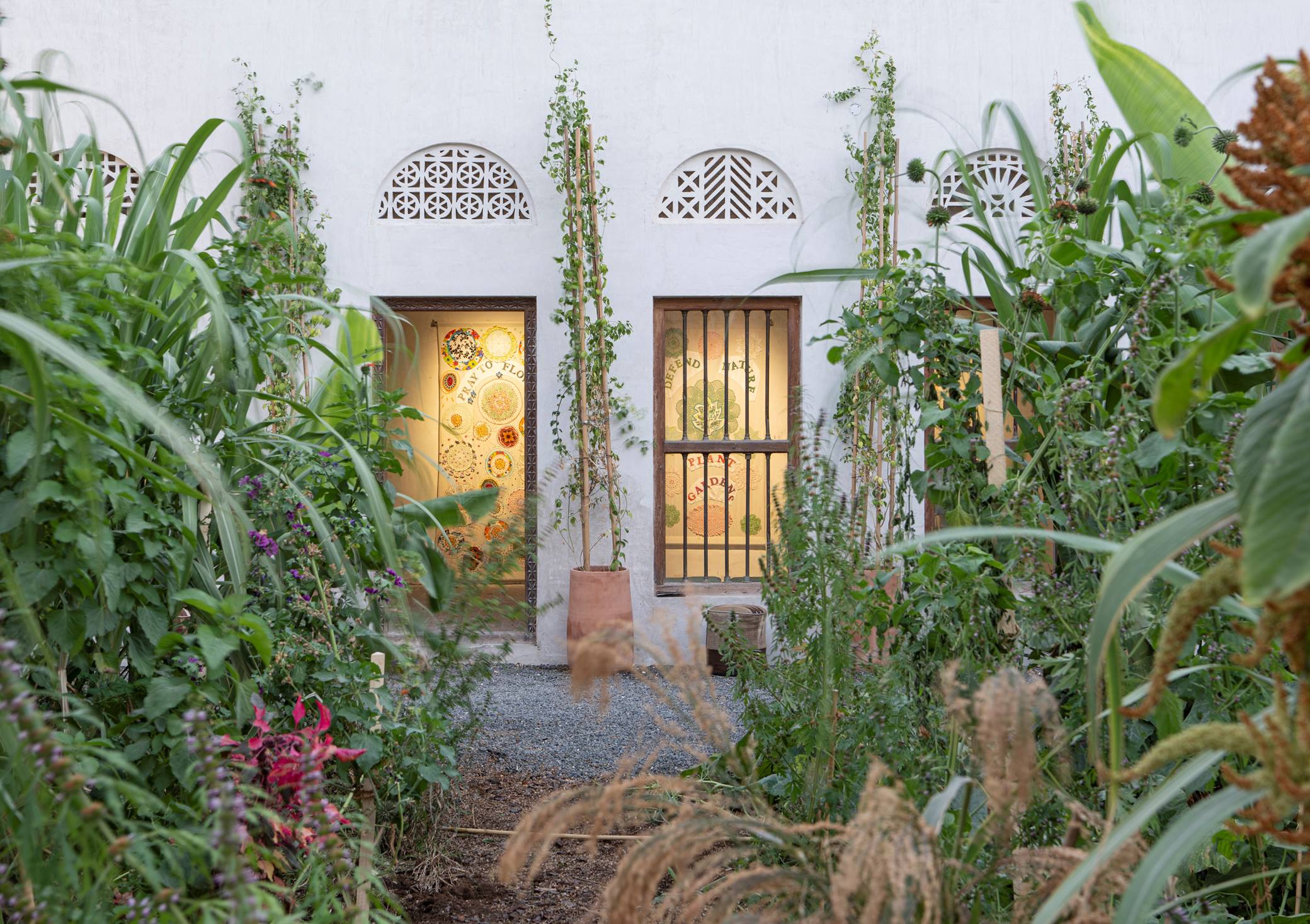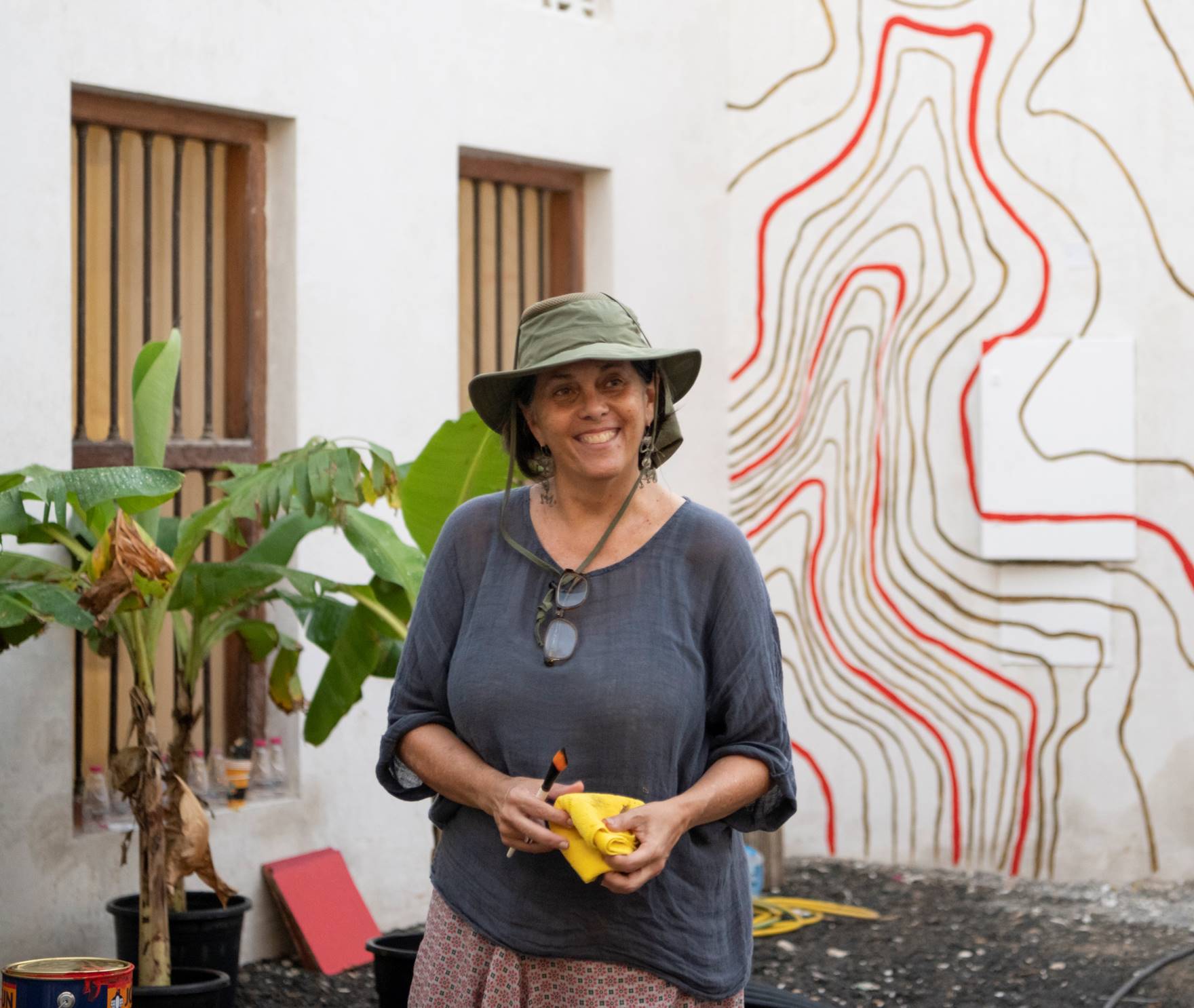[Kunst Afrikas] TODAY!!! Research colloquium for the Arts of Africa | ANNALEE DAVIS ‘Growing Spaces of Care in a Post-Plantation Landscape’ (27.6.2023, 18 c.t., online via Webex)
Dear students, colleagues and friends of the Colloquium for the Arts of Africa,
The next session of our colloquium for the Arts of Africa will take place online TODAY (June 27, 2023) from 18:15-19:45. We look forward to welcome there the visual artist, cultural activist, and writer Annalee Davis. We cordially invite you and interested guests to the lecture. Everybody is welcome!
ANNALEE DAVIS
‘Growing Spaces of Care in a Post-Plantation Landscape’
June 27, 2023 at 18.15
Online via Webex: https://fu-berlin.webex.com/fu-berlin/j.php?MTID=maffcb7144105d2dfdeb571bfcfff013c (Meeting-Kennnummer: 2734 842 7671, Über Videosystem beitreten: Wählen Sie 27348427671@fu-berlin.webex.com; Über Telefon beitreten: +49-619-6781-9736 Germany Toll, +49-89-95467578 Germany Toll 2, Zugriffscode: 2734 842 7671)
[cid:image005.jpg@01D9A8E3.AF8B12F0]
Annalee Davis with Yoeri Guépin: Pray to Flowers – A Plot of Disalienation. 2022–2023 on Scharjah Biennial. Photo: Annalee Davis.
Growing spaces of care in a post-plantation landscape
How can we unlearn the plantation? This inquiry resonates with visual artist Annalee Davis from her home in Barbados, the world’s youngest Republic where questions swirl around the vestiges of the trans-Atlantic slave trade, the plantation economy, tourism, and land use all while navigating shared memories.
Her practice explores Barbados’ extractivist plantation history that irrevocably altered the island’s landscape, impacting the contemporary socio-eco-political environment, addressing the radical transformation from plantation to hotel.
For the Africa Research Colloquium, Davis will share two of her recent living apothecaries– A Garden of Hope on the east coast of Barbados and Pray to Flowers-A Plot of Disalienation in Sharjah, UAE– inspired by the regenerative role of botanicals and plots as sites of refusal, counter-knowledge, community, and healing. Together, they highlight a once-varied Barbadian landscape infused with spirit-based practices and ancestral knowledge systems that defied historically inhumane conditions. Through her regular ritual of walking haunted grounds, Davis fosters a practice of innerseeing rather than overseeing–recognizing soil as a tomb, as witness, and as an archive, responding to the existential climate crisis or the plantationocene–a term of preference–placing colonialism and capitalism in the driver's seat of this epochal shift.
Her living interventions build on the history of marginal plots of land inside plantations given to enslaved African people to grow food, practice rituals, make medicine or poison, and take care of their community. Conceived as post-plantation living apothecaries, rather than reflecting the geometry of the plantation, these small plots recall the bio-diverse counter-landscapes honouring inter-cropping methods and healing traditions, suggesting future strategies for repair, thriving, and connection.
BIO
Annalee Davis' hybrid practice is as a visual artist, cultural activist, and writer. Her work sits at the intersection of biography and history, focusing on post-plantation economies by engaging with a particular landscape of Barbados. Her studio, located on a working dairy farm that operated historically as a 17thC sugarcane plantation, offers a critical context for her practice. Drawing, walking, making (bush) teas, and growing living apothecaries, Annalee Davis’ practice suggests future strategies for repair and thriving while investigating the role of botanicals and living plots as sites of refusal, counter-knowledge, community, and healing.
Annalee is currently exhibiting at the Sharjah Biennale in the UAE with a living apothecary and series of embroidered drawings collectively titled Pray to Flowers – A Plot of Disalienation, and in the group show Spirit in the Land, Nasher Museum, USA. She is working towards a solo show opening in the fall of 2023 at Airas-Wang in Girona Spain. Recent group exhibitions include Vanishing Lines (Venezuela); Staple: What’s on your plate?, the inaugural show for Haay Jameel (Jeddah); And if I devoted my life to one of its feathers? (Kunsthalle Wien, Austria), and Potential Agrarianisms: Will there be sugar after the rebellion? (Kunsthalle Bratislava, Slovakia). Her recent solo exhibition, A Hymn to the Banished opened at the Steadings Gallery in the Highlands of Scotland as part of a year-long commission for the National Trust for Scotland exploring historic links between Scotland and Barbados. The Garden of Hope at Walkers Reserve in Barbados' Scotland District is now open.
[cid:image006.jpg@01D9A8E3.AF8B12F0]
Annalee Davis in Scharjah 2022-2023.
About the Colloquium for the Arts of Africa:
The colloquium invites researchers, artists, curators, and activists to present different critical approaches to cross-cultural knowledge transfer in the arts at this very moment in history to our student body and teaching staff. The colloquium is an (online) forum to debate current research and work in progress that is sensitive to hegemony and power relations in artistic and academic networks. https://www.geschkult.fu-berlin.de/e/khi/schwerpunkte/abteilung_afrika/Kolloquium/index.html
With kind regards,
Celia Schmidt
In the name of the department for the Arts of Africa
Freie Universität Berlin
FB Geschichts- und Kulturwissenschaften
Kunsthistorisches Institut
Abteilung Kunst Afrikas
Sekretariat: Celia Schmidt, M.A.
Koserstr. 20 (A 3.08), 14195 Berlin
Telefon: +49-(0)30-838-55286, Fax: +49-(0)30-838-4-55286
kunstafrikas@zedat.fu-berlin.de<mailto:kunstafrikas@zedat.fu-berlin.de>





